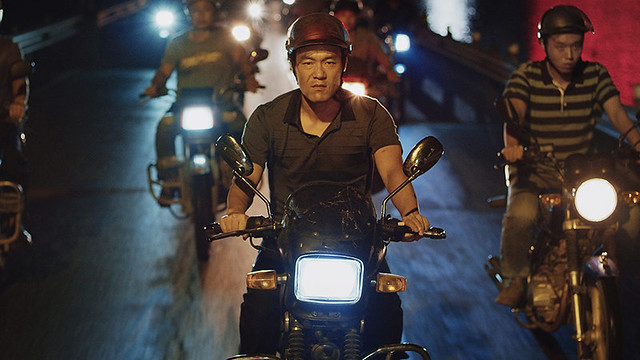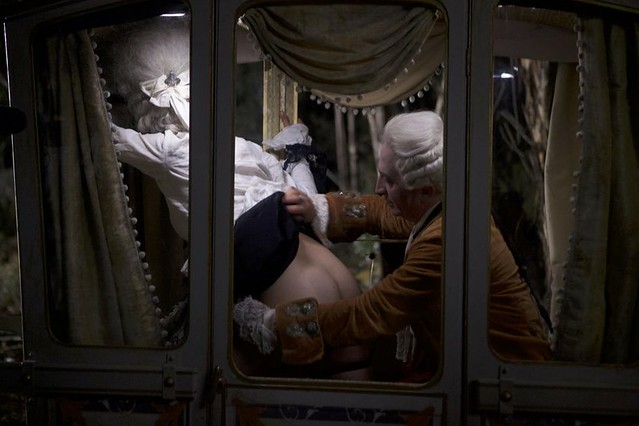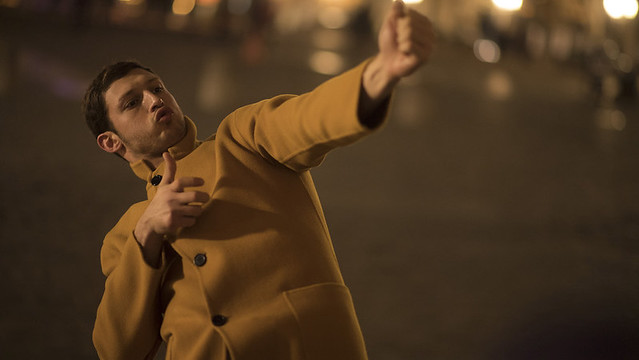
Roubaix, a little northern French town near Belgian border, is where Arnaud Desplechin's new film, Oh Mercy! takes place. It happens to be the director's hometown. He didn't have good things to say about Roubaix in Ismael's Ghost, his last film. He described it as the poorest, crime-ridden rathole, the city in decline. But when I interviewed him, he told me that he is making a film about its townsfolk in the next film. As a result, Oh Mercy! is Desplechin's episode of Law and Order with some compelling acting by two of France's leading actresses - Léa Seydoux and Sarah Forestier.
Narrated by a well meaning young cop Louis(Antoine Reinartz) who was just transferred from another town, Oh Mercy!'s trajectory is just as erratic and unexpected as many of Desplechin's past work. And it's delightful. Anchored by Chief Daoud (great Roschdy Zem), the police precinct tries to keep law and order where drug abuses, runaway cases, disorderly conduct, break-ins, false accusations based on racism are daily occurrence. The town is in bad shape with years of neglect and its mostly immigrant population barely getting by. Born in Algeria, but Daoud has been living in Roubaix most of his life. He knows the streets and he knows its people. He never raises his voice when questioning or interrogating suspects. He is firm yet deeply cares about what's happening in the lives of his townsfolk.
The film follows multiple threads at first, in real Desplechin fashion. Only in mid-way we revisit the one of the threads involving two young women which takes over the rest of the film. Claude (Lea Seydoux) and Marie (Sarah Forestier), two druggy friends living in a dangerously under-occupied, decrepit building in a neighborhood where you don't want to go out at night. They called the police before for breaking and entering, which Louis couldn't solve. It is most likely the girls lied, trying to get others in trouble. This time though, they report someone breaking into another apartment in their building. And the Daoud team finds an old woman strangled to death in a burglary-gone-wrong situation. All the usual suspects threads lead them to nowhere. And there's something that doesn't really add up in two girls' testimonies.
Louis, who has slight feelings for Claude, struggles to keep his temper in check when interviewing her. He knows she's lying. Marie, who is withdrawn and extremely shy, with her deer in the headlight expression leaves everything up to Claude when testimonies are concerned. They will need to interrogate the girls separately. It will be a she said, she said situation. Someone's gonna crack and spill the beans.
Seydoux and Forestier are great in their very unglamorous roles playing petite criminelles. But it's Roschdy Zem deserves an award for this. The sordid story is nothing to brag home about. There are millions stories like this we see on TV every night. But it's Desplechin's so very human portrait of these characters that is the heart of the film. There are several compelling scenes in the film but the one most stuck with me is Daoud's cool observation of the girls' relationship that sums up their entire history. He tells Claude what he sees - A pretty girl who was popular in school. But she finds out she can't really get what she wants or want others to get it for her in real life. Time in a town like Roubaix wasn't kind to her. She is stuck with her childhood friend who still worships her. They live in a day to day life in a squalor. It's a bad relationship. She knows it all to be true.
Oh Mercy! is certainly different from any other Desplechin film I watched over the years. But it's any less intriguing. The love he has for his hometown and its inhabitants are undoubtedly palpable. Desplechin is a master storyteller and humanist. Oh Mercy! is a very moving experience.




